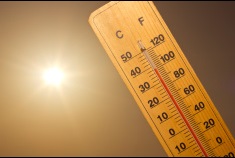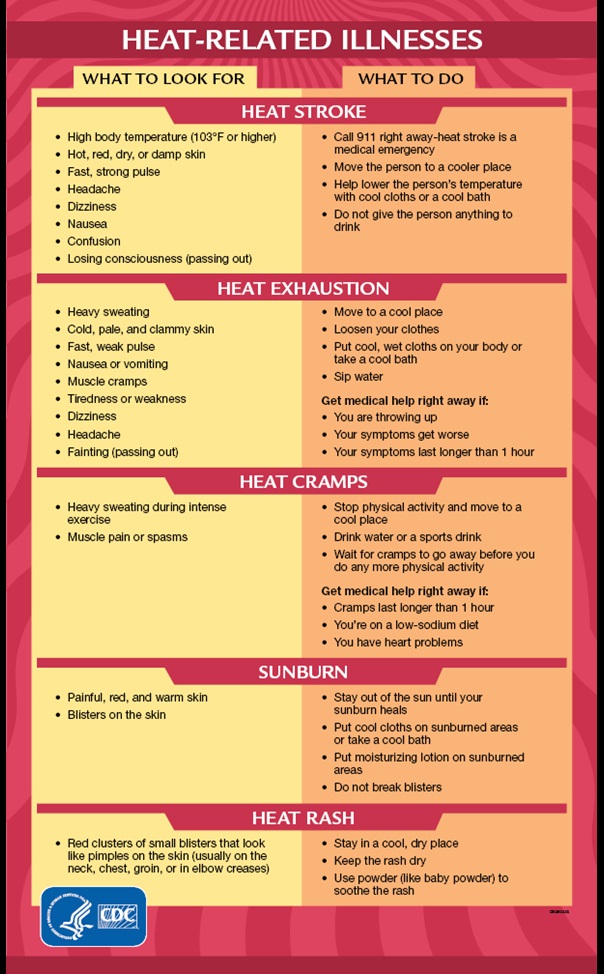Illnesses Caused by Extreme Heat



content and images adapted from the CDC
Extreme Heat:
Extreme heat is defined as summertime temperatures that are much hotter and/or humid than average. Some places are hotter than others, so this depends on what’s considered average for a particular location at that time of year. Humid and muggy conditions can make it seem hotter than it really is.
More on Extreme Heat / El calor extremo
Causes of Heat-Related Illness:
Heat-related illnesses, like heat exhaustion or heat stroke, happen when the body is not able to properly cool itself. While the body normally cools itself by sweating, during extreme heat, this might not be enough. In these cases, a person’s body temperature rises faster than it can cool itself down. This can cause damage to the brain and other vital organs.
Some personal risk factors that might increase your chance of developing a heat-related illness include:
- High levels of humidity
- Obesity
- Fever
- Dehydration
- Prescription drug use
- Heart disease
- Mental illness
- Poor circulation
- Sunburn
- Alcohol use
Who is at Risk:
Everyone can suffer a heat-related illness during extreme heat, especially those working outdoors or those engaged in physical activities/sports.
In general, the most vulnerable groups during extreme heat include:
- Older adults
- Infants and children
- Individuals with chronic health conditions
- Low income
- Athletes
- Outdoor workers
- Pets
More on Protecting Vulnerable Groups from Extreme Heat / Cómo proteger del calor extremo a los grupos vulnerables
Warning Signs to Look for:

Prevention Tips:
- Wear lightweight clothing
- Stay cool indoors: If you need to find a cooling center in your area contact Infoline 211
- Limit your outdoor activities
- Do not leave children or pets in cars!!!
- Hydrate and drink plenty of fluids (avoid sugary drinks and alcohol)
- Keep your pets hydrated and provide shade
- Check on your neighbors and those vulnerable to heat related illness
- Stay informed to your local news for updates
More Tips to protect yourself during extreme heat / Consejos para prevenir las enfermedades relacionadas con el calor
Or Ready.gov-Extreme heat safety

For more health information follow CT DPH on Facebook and Twitter or call 860-509-7599

